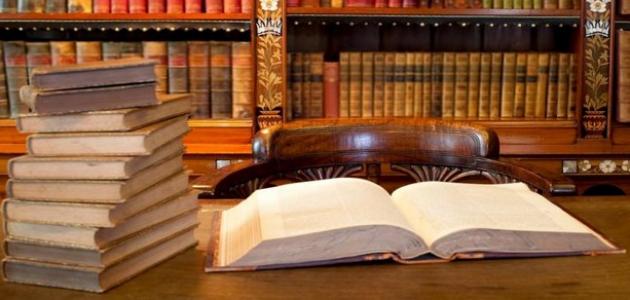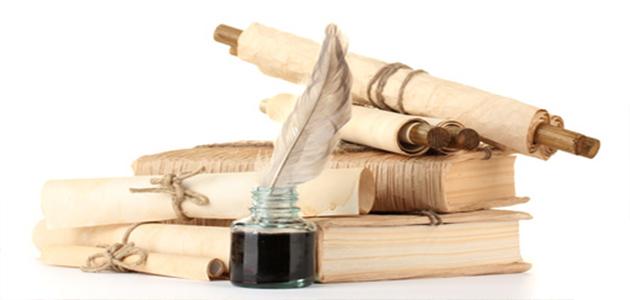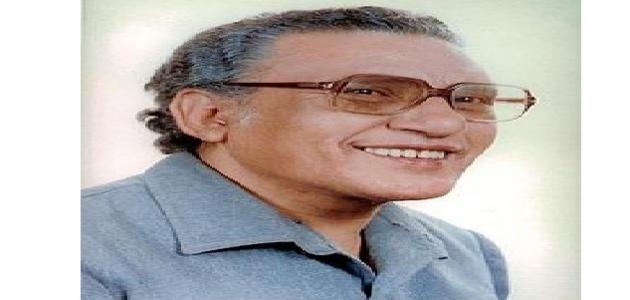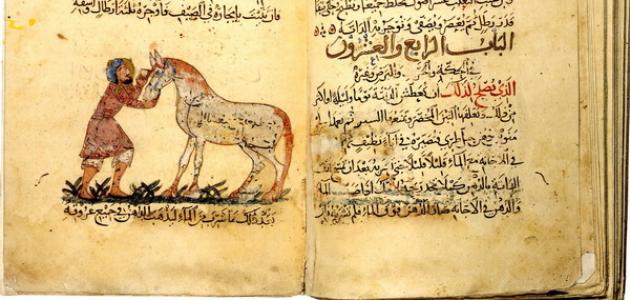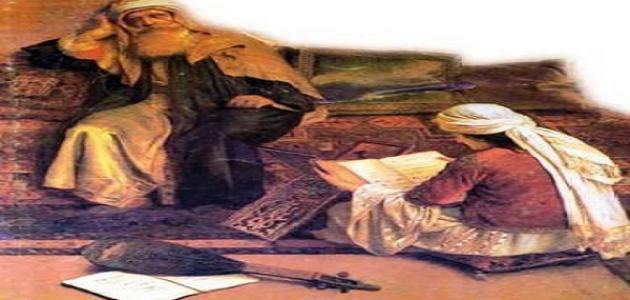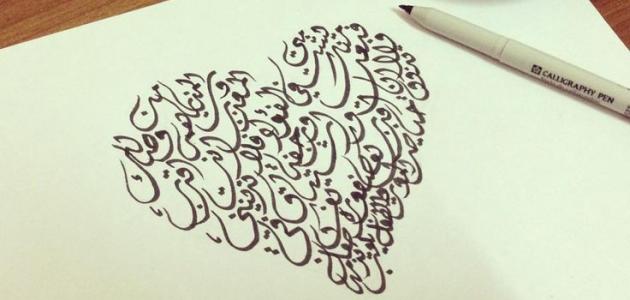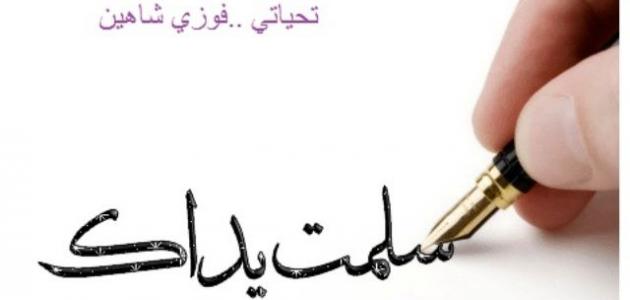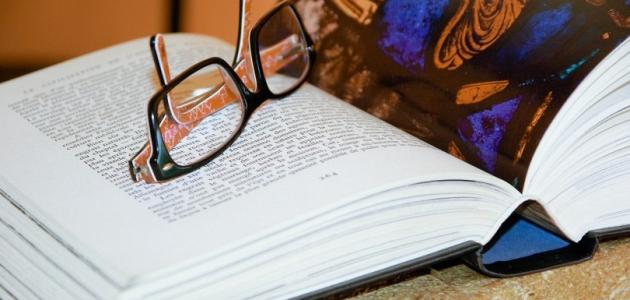Introducing the poet Ahmed Shawky
Ahmed Shawky is one of the pillars of modern Arabic poetry, and a pioneer of the Arab poetic renaissance. He ascended the throne of Arabic poetry, and was named the Prince of Poets in 1927 AD. Before that, he had been exiled to Spain in the period between 1914-1919 AD, and upon his return he dominated the literary scene in Egypt. Shawky was known for his abundant poetic production, and his poetry was distinguished by the strangeness of the words and the ease of style. He wrote plays in which he imitated the models of Western poets such as: Shakespeare, Corneille, and Racine.
The birth and life of the poet Ahmed Shawky
Ahmed Shawky Ali Ahmed Shawky Bey was born in Cairo in 1869 AD, where he grew up and grew up. He bore the name of his paternal grandfather and his surname Ahmed Shawky. The poet Ahmed Shawky descended from a family whose blood was mixed with five origins: Kurdish, Circassian, Arabic, Greek, and Turkish, so he found him through his father. Of Kurdish origin, he held several administrative positions during the time of Saeed Pasha, the last of which was the Secretary of Egyptian Customs. His maternal grandfather was of Turkish origin, and his name was Ahmed Halim al-Najdali. He was an agent for Khedive Ismail’s estate. As for his maternal grandmother, she was Greek and worked as a maid at the Khedive’s court. She took care of him during his childhood, so he grew up. In the shadow of the palace was an aristocratic upbringing, which made him dedicate himself to poetry and devote himself to it, so that he would not concern himself with others, and he was surrounded by the care of the entire family, especially since he was the only one of his parents.
Ahmed Shawqi received his first sciences at the age of four in the book of Sheikh Saleh, and he finished his secondary education at an early age in 1885 AD, then he joined the law school where he studied law, and alongside him he studied the translation of the French language, and he finished his studies in 1889 AD, and during his studies he was studying literature sciences on The hands of Hussein Al-Marsafi, Sheikh Hafni Nasef, and Sheikh Muhammad Al-Basiouni Al-Bibani, and after graduating from law school, Khedive Tawfiq sent him to France to complete his law studies, where he spent four years in Paris and Montpellier, then returned to Egypt in 1892 AD, and it is worth noting that Shawqi had He married Mrs. Khadija Shaheen, and he has three children with her: Hussein, Amina, and Ali.
Read also:Characteristics of the short storySources of the culture of the poet Ahmed Shawky
Ahmed Shawqi was an intellectual with a diverse culture. He devoted himself to reading the books of Arabic literature and continued to read them, especially the books of poets such as: Abu Nawas, Al-Buhturi, Al-Mutanabi, and Abi Tammam, and the books of great writers such as Al-Jahiz’s Animal Book, in addition to books on language and jurisprudence. In addition to his Arabic culture, he was fluent in the French language, because of the period he spent in France, which enabled him to familiarize himself with its literature, learn from its arts, and be influenced by its poets and writers with whom he was in direct contact, in addition to his mastery of the Turkish language, which he acquired from his home and family. The poet Ahmed Shawqi was affected by his stay in Spain during his exile, where he saw the manifestations of Islamic civilization there, and sensed the loss of the fleeting Arab-Islamic glory there.
The early days of the poet Ahmed Shawqi in poetry
The poet Ahmed Shawqi began composing poetry while studying law, and when he was a student at the hands of Professor Muhammad Al-Basiouni Al-Bibani, the poet of Tawfiq Pasha, Ahmed Shawqi used to read Al-Bibani’s poems, and review, revise and refine them. There was good in him, so he presented it to the Khedive Tawfiq and told him about his unique talent, so the Khedive summoned him and looked at his poetry.
The works of the poet Ahmed Shawky
The Shawqiyyat Court
It is a divan consisting of four volumes. It was first printed between 1888-1889 AD in Al-Adab and Al-Moayad Press, then it was reprinted in 1911 AD without any addition to it. The Shawqiyyat was divided into four parts. The first part was printed in 1926 AD without any addition to it, then the second part was printed. In 1930 AD, and after the death of Ahmed Shawky, the third part of the lament was printed in 1936 AD, then the fourth part was printed in 1943 AD.
Read also:Manifestations of renewal in the poetry of Abu Nawasnovels
The poet Ahmed Shawqi wrote three novels, they are:
- Virgin India: It is a novel about the ancient history of Egypt during the days of King Ramses II, and he wrote it in 1897 AD.
- Ladias: The word (Ladias) means the last of the pharaohs, and it is also about the ancient history of Egypt, and reflects the state of Egypt before the fifth century AD, that is, after the era of Psmavik II.
- ace card: It is also a historical novel that took place during the time of Shapur, king of the Persians.
- Pentawer's memoirs: It is a novel that revolves around an ancient Egyptian belief, which is that some people can talk to birds and express them with their tongues. The novel was a dialogue between the hoopoe, which symbolizes the poet himself, and the eagle, which symbolizes the devil who used to live in Bentauru, the ancient Egyptian poet.
plays
The poet Ahmed Shawky was considered the pioneer of the Arab theater, as he filled a void in contemporary literature, so he put together a number of poetic plays that dealt with their primary material from ancient history and contemporary social life, and made each of his plays a goal represented by a specific direction, lesson, or moral value. The playwright was influenced by European literature, as he benefited from his readings of French and English literature. These plays are:
Read also:Types of analogy- The play The Death of Cleopatra and the Play Gomez: They dealt with the ancient history of Egypt, and in Cleopatra the national trend was adopted and it was distinguished by the abundance of poetic lyricism. As for the Gomez play, it focused on national sacrifice.
- Ali Bey the Great Play: The poet drew its material from the recent history of Egypt, and adopted national independence in it, but he changed some of its real events, as it increased the character of goodness for the characters in a way that contradicts the historical reality.
- Al-Sitt Huda play: The poet inspired its events from contemporary social life, and it is a satirical play in which he criticized the utilitarians and opportunists.
- Antara's play and Majnoon Layla's play: Ahmed Shawky was inspired by the ancient history of the Arabs, and more in them than the poetic lyricism, and focused in the play Antara on chastity in love, and on adherence to traditions in the play (Majnoun Laila).
- Princess of Andalus play: The poet wrote this play in prose, and it is inspired by Arab history, and its basis is fulfillment and commitment to the covenant.
- Miserly play: It is considered a critical comedy play inspired by contemporary social life, in which Shawky turned to the class of simple people or ordinary people completely away from that aristocratic class, as the miser is an ordinary woman who saves wealth and deprives herself of everything.
books
The poet Ahmed Shawky did not write many books, and he limited himself to two books:
- Gold Markets Book: It is a prose texts with difficult vocabulary of the Prince of Poets, in which he deals with matters related to human life, and he defined it in the introduction to the book, saying: (It is a book, which contains various meanings of images and different purposes of news, of great danger, including what is long overdue, and young to deal with it The pen, and the pain of negligence from the book and knowledge, and some of them are many on the tongues these days and are presented in the ways of the pens and utterances are used in the reins of speech, such as: freedom, the homeland, the nation, the constitution, humanity, and many other affairs of society and its conditions) .
- The Book of Arab Countries and the Greats of Islam: This book is considered a landmark in the history of Arabic literature, as it consists of double verses consisting of two thousand verses, organized by the poet Ahmed Shawqi with creativity, in which he talked about the biography of our master Muhammad, may God bless him and grant him peace, the biography of the Rightly Guided Caliphs, the biographies of other men, and he mentioned the Arab countries in the ages Umayyad, Abbasid, and Fatimid.
Characteristics of the poetry of the poet Ahmed Shawky
The purposes of Ahmed Shawky's poetry
Shawky composed poetry in many different and varied fields, where he wrote political and patriotic poetry, in addition to the poetry of lamentation, praise, spinning, description, and wisdom. Love for the homeland, religion, life, and freedom, and it was characterized by the power of passion, the breadth of imagination, the smoothness and sweetness of words, and the power of compositions.
Ethics in the poetry of the poet Ahmed Shawky
The poet Ahmed Shawky often mentioned morals in his poetry and urged them, because by it nations live, and by it individuals become happy. The issue of morals preoccupied our poet, so for him it was an important issue that he strived to communicate to people in a creative and distinctive way, which made them feel it and interact with it and realize its importance to them and to those who They will come after them, and Shawqi achieved his goal by making the issue of ethics an important human goal, so he expressed that in clear terms of meaning and significance.
Islamic influences in the poetry of the poet Ahmed Shawky
The poet Ahmed Shawqi’s influence on the Islamic side appeared strongly in his poetry, especially his influence on the Holy Qur’an, which is considered the first reference for all Muslims, including poets and writers. To preserve the dignity of Muslims and to establish the justice that God commanded to be established.
Language and Musical Rhythm in the Poetry of the Poet Ahmed Shawky
The poet Ahmed Shawqi was linguistically proficient, as he possessed abundant linguistic wealth, which had an impact on his poetry, as it gave him the following characteristics:
- Good knowledge of the Arab heritage and work to revive it and draw inspiration from it. He composed poems that were inspired by the Abbasid era and opposed poets such as Al-Buhturi.
- Calm emotion and restraint.
- The manifestation of music in his poetry and his ability to use it intelligently to show the meaning to be conveyed.
- Numerous artistic images emerge from the general artistic image of the artwork.
Illness and death of the poet Ahmed Shawky
The Prince of Poets, on the cusp of sixty, was stricken with atherosclerosis, and in the year 1930 AD he was struck by another sudden illness that exhausted his strength and forced him to bed for four months. , Ali Bey Al-Kabir, the miserly woman, and the woman Huda, and on the evening of October 13, 1932 AD, the creative poet Ahmed Shawqi passed away, and he surrendered his soul amid the astonishment of those present with him and those who tried to save him from shortness of breath and the bout of coughing that afflicted him, and Arabs in all countries received news of his death Shawqi was deeply saddened, and newspapers and magazines called him, and they kept talking about his poetry and his life for a long time, as writers and poets bequeathed him with pain and sorrow, and when he was buried, two verses of the poem “Nahj al-Burda” were written on his grave, which he composed in praise of the Messenger of God, may God’s prayers and peace be upon him. He made this will before his death, and these two verses are:
O Ahmad Al-Khair, I am honored by your name
- How can the Messenger not be named after the Messenger?
If my sin is greater than forgiveness, I have hope
- For the sake of God, make me in the best of Mu'tasim
Verses from the poems of the poet Ahmed Shawky
The following verses from the poem (Your pain is dryness is his resting place).
Your pain is dryness of his bed
- And he wept and had mercy on his return
The confusion of the heart torments it
- The sore eyelid is sedated
I literally died
- Keep it on you and you run out
Paper impresses its groaning
- And the rock melts his sigh
The following verses are from the poem (These beauties did not leave behind a burqa).
Hold your mask, Suad, or lift it up
- These beauties were not created for a burqa
The suburbs, the weepers, and without them
- The cover of majesty, after Shao Almtaa
O doll whose beauty cannot be increased
- Increase the good benefactor of the benefactor
What is his authority standing on
- For the afflicted, and compassion for humility?
The following verses from the poem (Reem on the bottom between dairy and science).
Rim on the bottom between the banner and the flag
- I lawful shed my blood in the sacred months
judiciary shot a lion with the eyes of a root
- O inhabitant of the bottom, realize the inhabitant of the thickets
When we saw it, the soul spoke to me, saying
- Oh, woe beside you with the arrow that hit you
I denied it and suppressed the arrow in my liver
- The wound of my loved ones is painless

